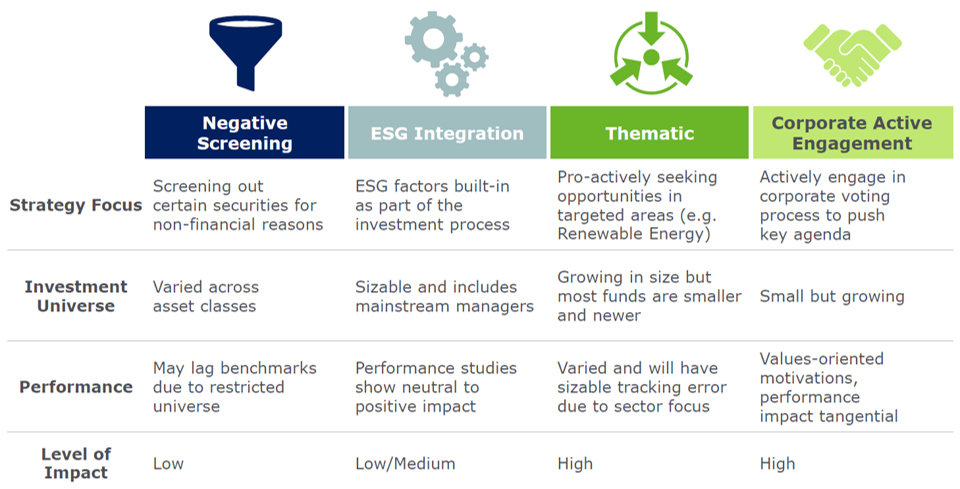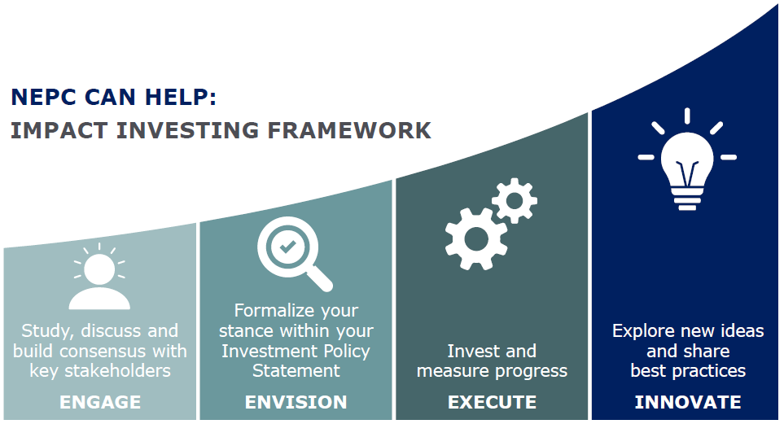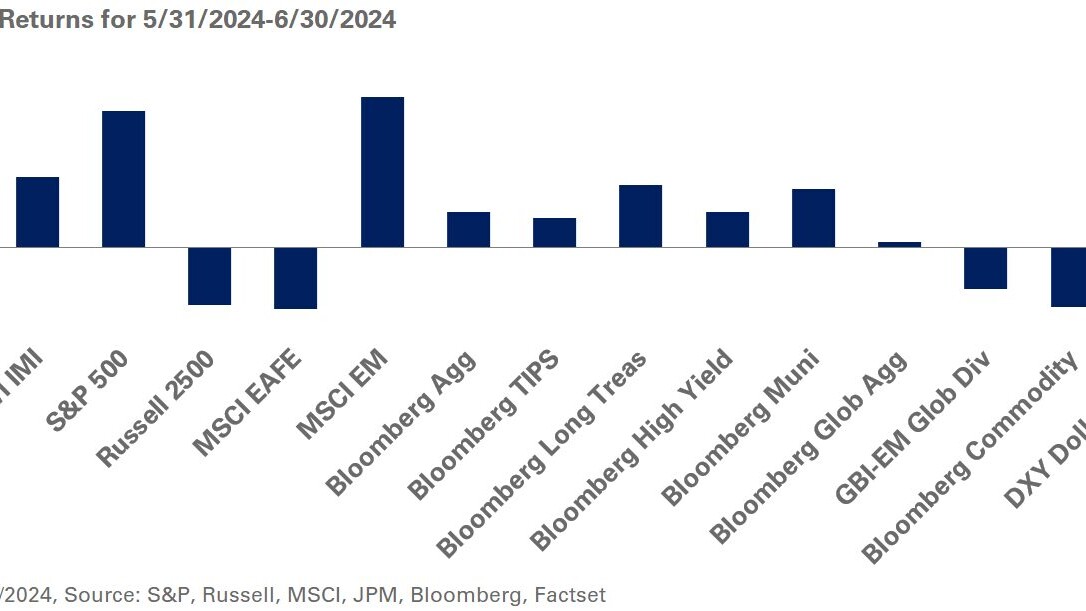Healthcare systems and foundations are demanding more from their investment dollars and are increasingly turning to impact investing as they seek to attain a societal contribution in addition to a financial return.
Not content with just investment gains, more healthcare organizations are using their investment portfolios to improve health outcomes and meet the needs of underserved communities without sacrificing returns. Acutely aware of the critical role they play within their communities, healthcare systems are delivering services through community outreach and direct monetary investments in programs that serve local populations; these services include acute treatments to early intervention, preventative care and longer-term health education. These health and wellness-providing investments, benefiting local individuals and families, help healthcare systems align their portfolios with their organization’s purpose and mission statement.
At NEPC, we are well versed in impact investing strategies and are equipped to advise investors on how best to achieve a measurable social contribution—in this instance, a healthcare-focused one—without compromising financial gains. We differentiate the spectrum of impact investing across four primary areas:
Our diverse healthcare team of dedicated advisors—with academic grounding in economics, business, health and society, and experience in asset allocation, risk management, fund design, investment policy development, philanthropic governance, health insurance plans and healthcare operating funds—brings a multitude of talent to the table. We use a proprietary framework to help healthcare enterprises implement a customized impact approach that aligns their investment goals to their mission.
For healthcare entities, impact investing guidelines are informed by a variety of missions that often overlap with each other. These can range from religious affiliations to local, community-based approaches. For instance, an NEPC rural healthcare client is prioritizing housing security—a key social determinant of health—as low-income populations, already facing the consequences of gentrification, are rendered increasingly vulnerable by the COVID-19 pandemic. We facilitated educational sessions for this client and explored local investment opportunities focused on helping those struggling with access to secure housing. We discussed Community Development Financial Institutions (CDFIs) that specialize in providing funding to mission-driven financial institutions that support economically disadvantaged communities.
Another NEPC client, a healthcare system, is exploring ways to measure its impact investment in the local community. The client is considering community metrics used to rank states across the U.S. to gauge progress. These metrics include characteristics such as obesity, tobacco use, drugs and alcohol consumption; community and environmental attributes such as the rates of infectious disease and immunization; and outcomes such as the leading causes of death, disparity in health status and mental health. This healthcare enterprise, based in the Midwest, believes that investing in local organizations that focus on preventative health solutions are critical to improving health outcomes. It committed $100 million to a community-based impact investing fund dedicated to addressing challenges in dealing with negative social determinants of health, for instance, a lack of education and literacy, substandard housing, poor lifestyle habits and adverse childhood experiences.
We also partnered with another client, an academic health system, on how best to incorporate environmental, social and governance (ESG) factors within its investment process. As one of the first consulting firms in the United States to become a signatory to the Principles for Responsible Investing (PRI), we leveraged our experience integrating ESG within our internal investment manager research process. We developed language for the investment policy statement, outlining our client’s philosophy for the consideration of ESG and how it aligns with the broader system’s mission. In addition, we evaluated our client’s existing investment managers to determine their level of ESG integration using NEPC’s proprietary ESG rating system, which differentiates the depth of ESG integration at the investment, firm and product levels.
Our work with our healthcare clients is a testament to NEPC’s commitment to be a driver of positive change and further impact investing. To that end, we are here to help you in your impact investing journey, no matter where you may be.
Whether your organization is at the engage stage, debating between ESG integration and thematic investing, or if it is in the innovate phase, we have the resources to benefit you. Some of the many ways in which we can help: bring together key stakeholders to facilitate understanding and build consensus, organize a discussion with your peers so you can compare strategic approaches, and evaluate and recommend investment strategies that balance the need for financial return with societal impact.
Healthcare systems and foundations are uniquely positioned to fulfill the need for greater public health in disadvantaged populations. They can dramatically improve the health and wellness outcomes of the individuals and families they serve. We encourage you to reach out to NEPC to learn more about our resources to implement impact investing within your organization.





